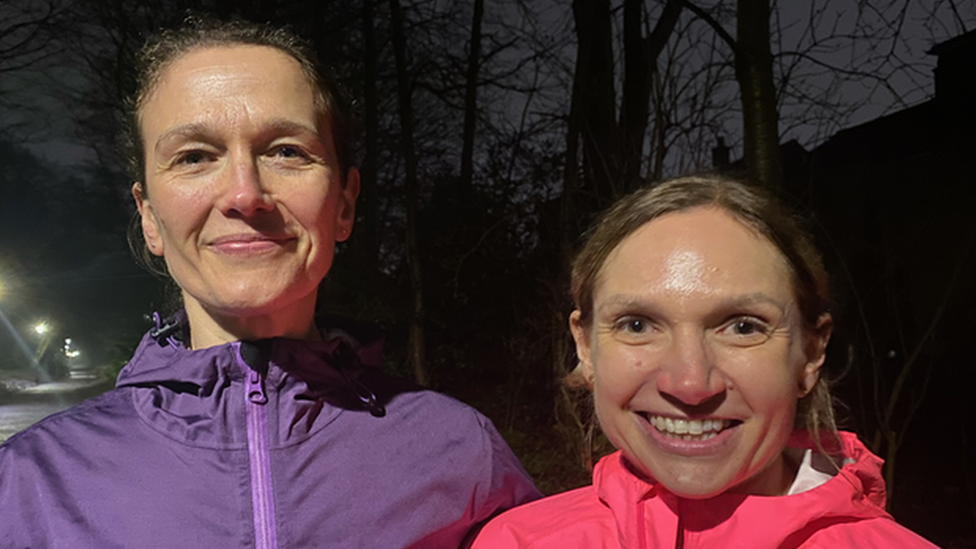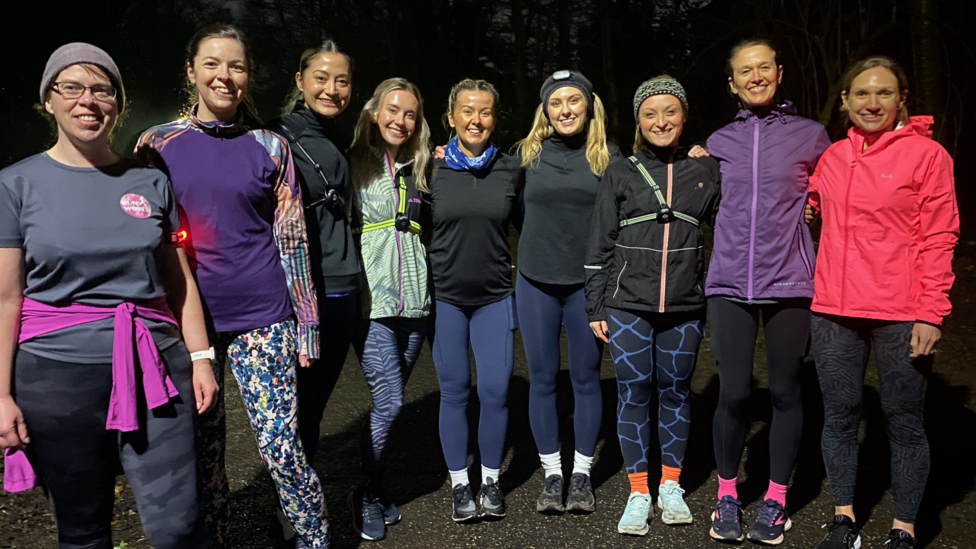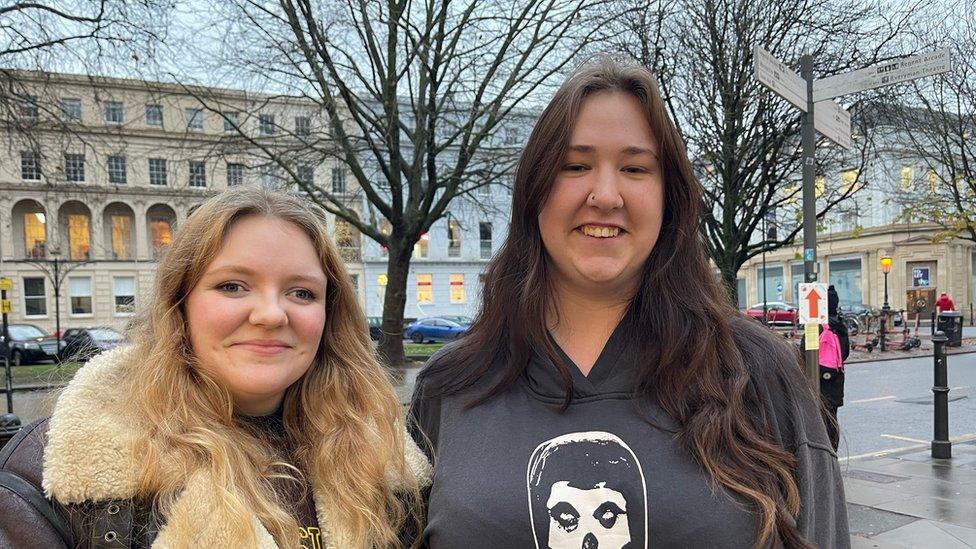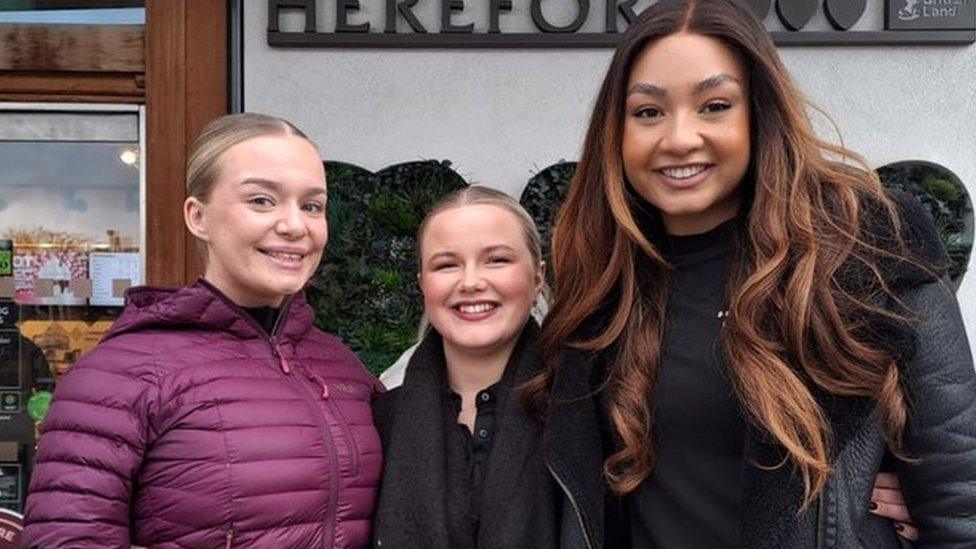Two-thirds of women experience abuse while running, study finds
- Published

Prof Rose Broad (L) and Dr Caroline Miles hope their study will make a difference for women out running
Hundreds of women in the North West have said they have been harassed while out running.
A study by the University of Manchester asked 498 women who regularly run in Greater Manchester and Merseyside about their experiences.
About 68% of the women said they'd been experienced some form of harassment, including being wolf-whistled and, in some cases, followed.
But only 5% of those women had reported the incidents to the police.
Dr Caroline Miles and Prof Rose Broad, the criminologists behind the study, said they hoped the findings would help the police create new strategies to protect women from abuse.
Some of the women who responded said they had had things thrown at them from cars while they were out on a run.
"In the few cases where women do report to the police, it's because those things are much more serious," said Prof Broad.

The study found many women had been harassed while running, but few had reported it to police
Prof Broad is a regular run leader with Run the World - a women-only running club based in Monton in Greater Manchester.
Many of the women who run with the club said they joined because of a need to feel safer.
"It's nice to go and do pathways that you wouldn't normally do that are really quiet - that you would never do at night on your own" said member Vicky Hilton.
"You just feel safety in numbers."
'Dangerous'
Amber Nevin joined the club two years ago, after experiencing harassment herself.
"I've been wolf-whistled at, heckled - just for wearing sportswear really," Ms Nevin said.
"Just putting headphones in and listening to music can be so dangerous as you have to be so aware of your surroundings."
The project also found 82% of women felt concerned for their safety while out running, even if they had never experienced an incident themselves.
"A lot of women in the survey told us they carried things like keys, rape alarms, things like that and were also tracked by family members" said Dr Miles.
The academics said they hoped their research would encourage more women to report incidents they felt were minor, or would not be taken seriously.
Dr Miles said: "It's about not just thinking 'oh this is normal, it's part of being a woman'.
"But really the work we would like to do in the future is with boys and men - around the underpinning attitudes that lead to this behaviour."

Why not follow BBC Manchester on Facebook, external, X, external and Instagram, external? You can also send story ideas to northwest.newsonline@bbc.co.uk, external
- Published25 January 2024

- Published10 December 2023

- Published7 February 2024
